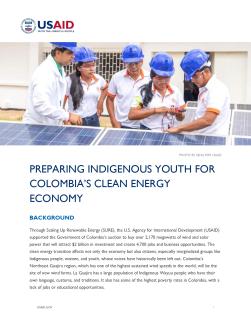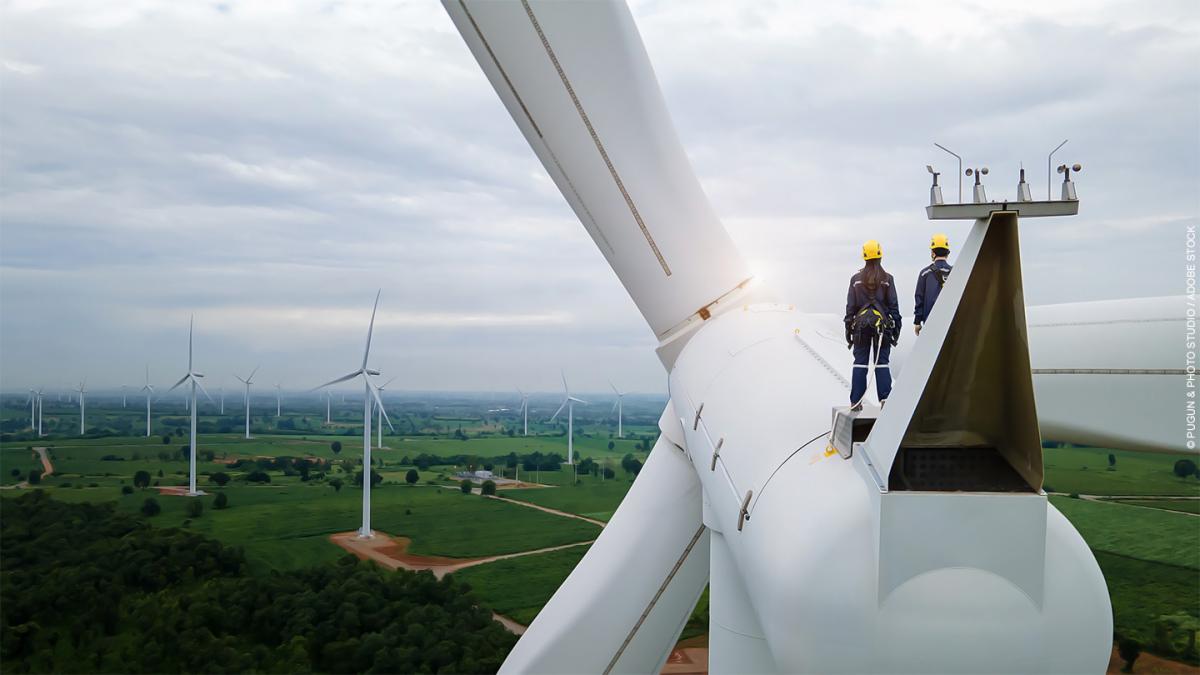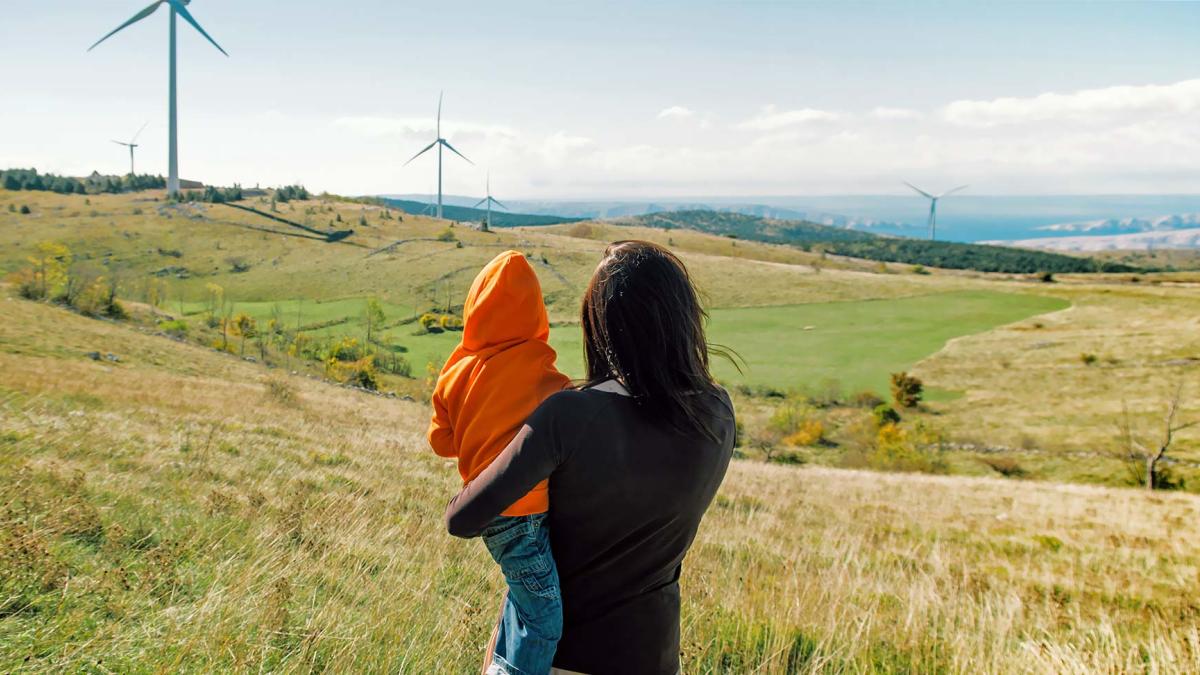Preparing Indigenous Youth For Colombia’s Clean Energy Economy
SURE II
Fact Sheet – December 2023
Empowering marginalized groups is essential to creating green jobs, fostering economic independence, protecting rights, and contributing to community well-being and sustainability.
Renewable energy is a cost competitive way to provide access to reliable electricity that powers economic growth and provides more employment opportunities than fossil fuel electricity generation. USAID supports the Government of Colombia’s efforts to ensure that the traditionally marginalized groups in Colombia also benefit from renewable energy.
USAID is committed to supporting a just and inclusive transition to a low-carbon and climate-resilient economy where Indigenous Peoples, local communities, women, and youth can participate in, benefit from, and lead Colombia’s clean energy future. By engaging traditionally marginalized groups in the development process, renewable energy projects can mitigate the risk of negative social impacts and include these groups in equitable and environmentally sustainable economic growth.
Background
Through Scaling Up Renewable Energy (SURE), the U.S. Agency for International Development (USAID) supported the Government of Colombia’s auction to buy over 2,170 megawatts of wind and solar power that will attract $2 billion in investment and create 4,700 jobs and business opportunities. The clean energy transition affects not only the economy but also citizens, especially marginalized groups like Indigenous people, women, and youth, whose voices have historically been left out. Colombia’s Northeast Guajira region, which has one of the highest sustained wind speeds in the world, will be the site of new wind farms. La Guajira has a large population of Indigenous Wayuu people who have their own language, customs, and traditions. It also has some of the highest poverty rates in Colombia, with a lack of jobs or educational opportunities.
Priorities
To support Colombia’s inclusive energy transition, USAID partnered with the government and the Colombia vocational training agency Servicio Nacional de Aprendizaje (SENA) to create a workforce training program tailored to meet the needs of Indigenous communities and renewable energy companies. The program started in July 2022 and ends in March 2024. The training portion, which ran from July 2022 until July 2023, covered fundamental concepts in solar and wind energy with a focus on service for Indigenous communities. Trainees learned to install and maintain solar photovoltaic (PV) installations for off-grid and on-grid applications. They learned to establish the technical specifications of solar generation systems, which ensures the optimal performance and durability of equipment, and learned to install residential electricity wiring. Trainees developed skills such as English, customer service, project administration, and logistics. They also learned about the national energy policy and regulation, financing opportunities for community projects, and entrepreneurship.
Key Results
Thirty-seven young adults, 21 of whom are women, from 13 Wayuu communities completed the academic portion of their solar PV installation and maintenance certification. They are now interning at a solar systems installation company to fulfill the practical training portion of their certification, where they are installing more than 200 PV systems in La Guajira and Chocó. This includes managing the overall construction project by scheduling, overseeing, and coordinating all construction processes to ensure that the project meets design specifications and complies with the deadline and budget. They also set up the internal wiring, electrical systems, and operational testing. Trainees in Barranquilla are assembling solar system kits to be used in the installation of solar PV solutions, wiring and pretesting components, and packaging the kits. Following the six-month internship in June 2024, trainees will enter the job market as certified technicians or become entrepreneurs.
As a result, the companies investing in La Guajira’s renewable energy economy will be supported by a more capable workforce, SENA’s trainers will be better prepared to lead future workforce development, and Wayuu communities will have more agents of change to address the climate crisis. Additionally, the government and SENA will have a fully developed, culturally tailored curriculum for a sustainable local workforce training program. SURE is working with the government, SENA, and other stakeholders to explore partnerships to host workforce training programs in other parts of Colombia.




